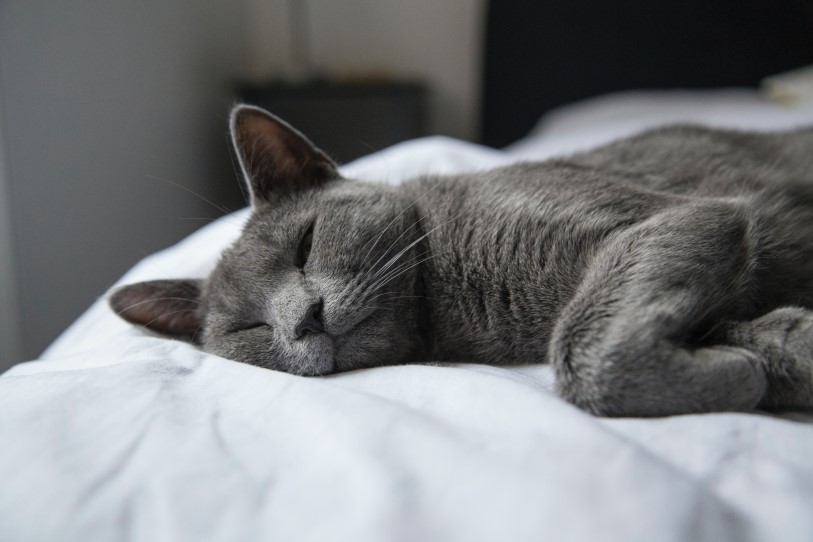The things you like doing with your pet are numerous and include playing, taking walks, snapping pictures or making films, watching television, and eating among many other activities. But, when you're doing all of that, do you ever pay attention to any strange signals that your pet could be sending you? If you answered yes, then you are doing an excellent job, and if you answered no, it is never too late to begin paying attention to each and every unusual thing that your pet does since those weird signs or acts can be a symptom of an underlying sickness that needs to be addressed.
Here are some of the indicators or unusual behaviours in your pet that you should be aware of and keep an eye out for:
Having a different way of behaving/occasionally misbehaving/or being irritated
The first thing you will notice is that there is something out of the ordinary going on. When a dog's mood changes or acts aggressively, he or she is likely to be in danger. Other signs of danger include: refusing to play or climb, refusing to walk or climb, refusing to play with their favourite toys, lethargic behaviour, preferring to stay alone and away from other pets, refusing to eat, and anything else that differs from normal behaviour. It's possible that your pet is suffering from an intestinal worm infection, such as roundworm, hookworm, or tapeworm, which can be fatal. If your dog refuses to move or engage in any physical activity, this might be an indication that he or she is suffering from arthritis or joint discomfort. In most cases, your pet's behaviour changes as a result of pain or discomfort, and cancer, hyperthyroidism, thyroid dysfunction in dogs, skin allergies, other parasitic infestations (including flea and tick infestations and gastrointestinal worm infestations), heart disease or heartworm infestations, as well as any internal or external injury, can all be contributing factors to those behavioural changes.
If you are travelling, travel anxiety may also be a contributing factor to your pet's altered behaviour. Instead of forcing your pet, prepare him or her by acclimatising and training him or her before to flying or taking a lengthy journey. You may have items such as Feline Anxiety Relief for Cats, Travel Anxiety, Anxiety TFLN, and many more on hand to calm down your pet when faced with a stressful circumstance.
Excessive Water Consumption
- Having your mate drink an excessive amount of water on a continuous basis for several days might be a clear indication that your friend is suffering from –
- Kidney failure is a medical emergency.
- The use of medications that need your pet to consume extra water is discouraged.
- Diabetes mellitus is a medical condition that affects the body's glucose levels.
- Psychogenic polydipsia is a condition in which the body experiences excessive thirst ( a psychological disease)
- Cushing's disease is a hormonal imbalance.
- Pyometra in female dogs who have not been sprayed
Panting to an excessive degree
While your pet is panting, he or she may appear to be in perfect health. It is very common for pets to pee after playing with a toy or after going for a stroll. Excessive and needless panting, on the other hand, is not typical. Heavy panting (together with deep and lengthy breaths) indicates the following:
- Insufficiency of the heart
- Heatstroke
- Heartworm infections on a large scale
- Poisoning
- Cushing's disease is
- a hormonal imbalance.
- Pneumonia
- Tumors, particularly lung tumours, are quite common.
Changes in your cat's breath, smelly ears, and the way his or her skin smells are all signs of illness
People and cats who are in good health do not stink. So poor body odour, awful mouth breath, and stinky ears are all warning signs of periodontal disease, renal failure, oral melanoma, diabetes, and ear infections, among other conditions, according to the American Academy of Dermatology. Your pet's skin is reeking, itching, peeling, and developing skin lesions, and this is almost always an indication of allergies, bacterial or yeast infections, and seborrhea in humans. Gastrointestinal disorders can also cause your pet to exhale foul smelling gases. If you see any of the indicators listed above, you should contact your veterinarian. Please do not ignore the indications or interpret this as a temper tantrum. It is important to remember that pets are innocent and do not throw tantrums in order to upset you; instead, their behaviours are caused by an underlying medical condition.
Tip of the day: Excessive drooling can be a sign of a tooth condition, heatstroke, or some type of neurological disorder. The same may be said about excessive wailing as a reaction to physical discomfort or damage, as well as psychological issues.
Some of the above-mentioned symptoms can be avoided by using preventative measures on a daily basis. For example, arthritis and joint discomfort can be avoided if you exercise regularly.


0 Comments